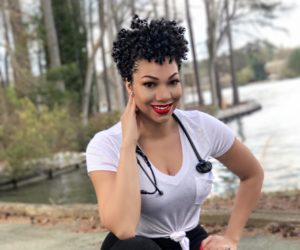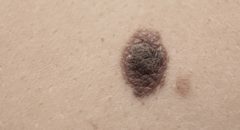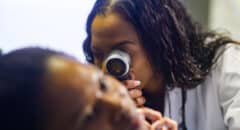
Melanoma is the skin cancer that took the life of the legendary reggae singer, Bob Marley, at the age of 36. It is the most dangerous type of skin cancer. It originates from pigment-containing cells called “melanocytes”, located in the basal segment of the epidermis. These are the cells that make melanin.
There is a myth in the African American community that skin cancer cannot occur the darker your skin is, hence the reason why most African Americans don’t wear sunscreen.
Having melanin doesn’t mean that you can’t get melanoma. Although it is true that black people are less likely to get Melanoma, we, however, are more likely to die from it. Melanoma presents at a rate of 22 per 100,000 in Caucasians and 1 per 100,000 in African Americans. However, African Americans usually present with advanced disease at the time of diagnosis, compared to Caucasians.
In fact, about 52% of African-Americans and 26% of Hispanics find out they have melanoma when it has already spread, compared with 16% of white people.
What Causes Melanoma?
Exposure to ultraviolet (UV) radiation from sunlight or tanning lamps and beds increases your risk of developing melanoma.
Additionally, other factors such as genetics or environmental influences may occur on parts of the body rarely exposed to the sun. For example, people who have dark skin are more susceptible to acral lentiginous melanoma, which is an especially dangerous form of melanoma that typically appears on the palms of the hands and soles of the feet.
While melanoma is not the most common of skin cancers, it causes the most deaths. Therefore it is important to know the signs of skin cancer because melanoma can be treated successfully if it is detected early.
A Few Things That Can Reduce Your Risk of Developing Melanoma:
-Take note of any new moles or spots on your skin, especially if it changes in size, color or shape.
-Reduce your exposure to UV radiation whether it is from the sun or from tanning beds.
-Wear a water-resistant sunscreen with SPF 30 or higher. Even if your skin doesn’t “burn” you can still incur skin damage.
-If possible stay in shaded areas between 10:00 am and 4:00 pm when the sun’s UV rays are the most intense.
-Check your own skin regularly (at least monthly) for any new marks, moles or spots, including the soles of your feet, the palms of your hands and even under your nails.
-Make sure to get skin checks at least once a year by a dermatologist. As a general rule, if you spot something abnormal or a change in an existing mole/lesion/birthmark, don’t overlook it and don’t delay seeing a physician.

Dr. Eva Beaulieu (IG: @dr.evab) has practiced medicine for 11 years as an Internal Medicine Hospitalist. She specializes in treating patients with High Blood Pressure, Diabetes and Obesity in Atlanta, GA.








